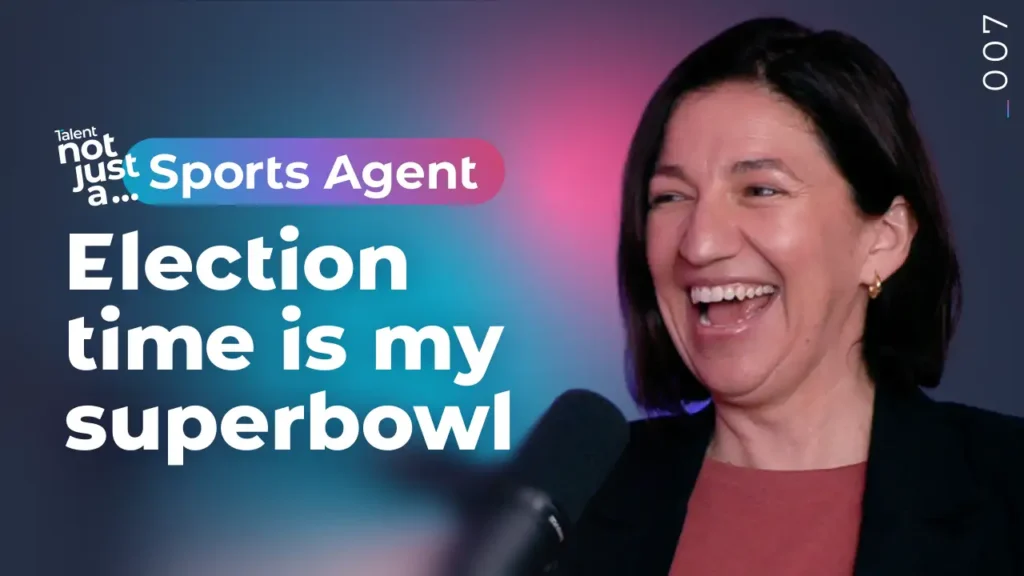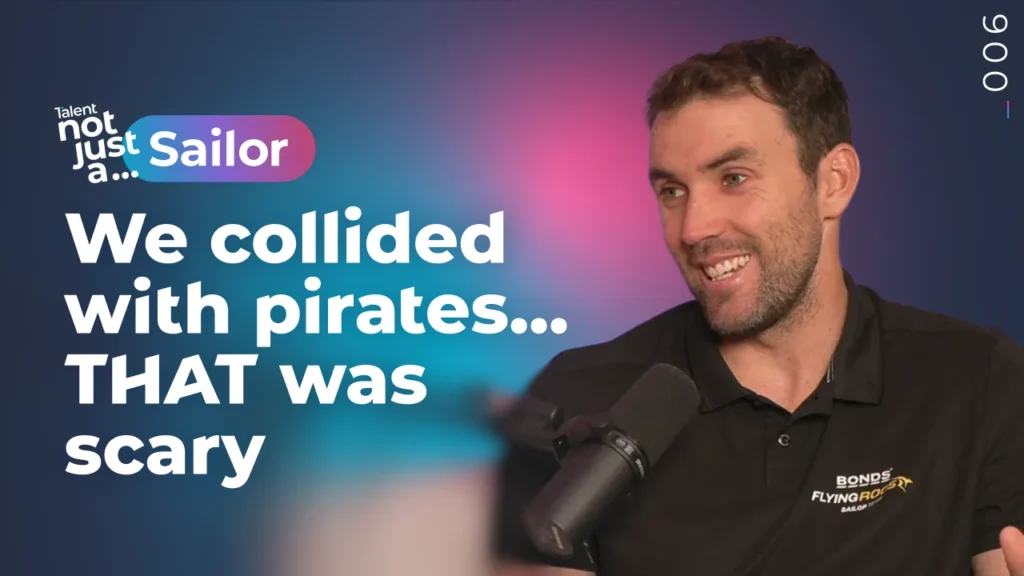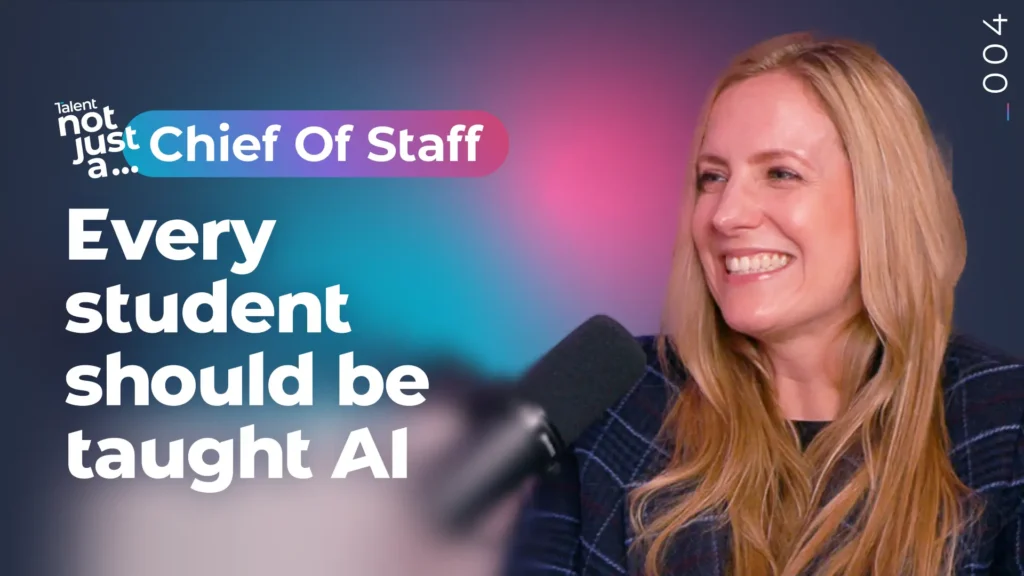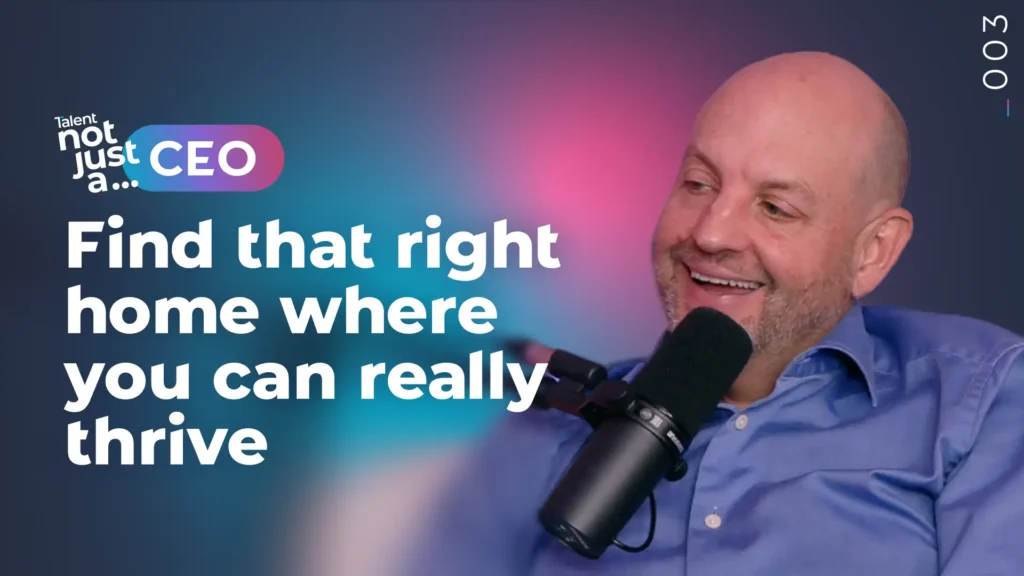
Alex Williamson on pressure, politics, and backing women to win
Alex Williamson on pressure, politics, and backing women to win

Before she was negotiating sponsorships and guiding elite athletes through career-defining moments, Alex Williamson was working inside Parliament House for Australia’s first female Prime Minister, observing how ambition, visibility, and scrutiny collide when women step into the public eye.
Today, Alex is one of Australia’s leading sports agents for female athletes, representing Olympians and Matildas at the highest level of competition. We sat down with Alex for our latest podcast episode to talk about who she is beyond the job title: the parts you don’t see on game day, in the brand campaign, or in the celebratory headline.
The unexpected route to sports
“I’ve had a pretty interesting journey. If someone had told me 10 or 15 years ago that I’d become a sports agent, I wouldn’t have believed them,” says Alex.
She began by studying PR and marketing, dabbling in junior communication roles, and working out what she liked and what she didn’t. Like many people who start in publicity with bright-eyed expectations, she quickly learned that the job is less glamour and more grind.
“It sounds glamorous, but it’s a lot of hard yards and underpay,” she says.
Then came a move that would shape the rest of her career in ways she couldn’t have predicted. Alex was offered an opportunity to move to Canberra to work for Julia Gillard, who at the time was Deputy Prime Minister.
“I came on as her media assistant,” Alex says. “I was very fortunate that I worked with her for five and a half years.”
It was a chapter of her life and career that had nothing to do with sports and everything to do with pressure, public scrutiny, and what happens when women operate in highly visible roles.
What pressure looks like when it’s gendered
Alex’s years in politics gave her a front-row seat to how the public treats ambitious women. She saw why scrutiny hits harder, confidence is policed, and being ‘too much’ is somehow still a career risk for women, and it applied no matter it be Parliament or sports.
“I saw firsthand the pressure and expectations placed on women in the public eye — what they wear, how they speak, how they behave,” she says. “You see the same expectations placed on female athletes, just in a different setting.”
“After question time, every single day, the phones just rang constantly. And it was not about policy. It wasn’t about anything of importance. It was about what she was wearing.”
It was the same playbook. Different stage, same rules.
The emotional cost of “personal touch”
Agents are often seen as transactional — you come in, you sign a contract, here’s your deal with brand X, see you in 12 months’ time. And Alex is clear that this was never the model she wanted to follow.
“I wanted it to be very personal,” she says. “The girls are constantly hearing from me and vice versa. I’m with them every step of the way.”
This choice meant her role extends well beyond contracts and campaigns, and a significant part of her work is providing emotional support, shaped by where an athlete is in their sporting life cycle and what’s happening off the field.
Alex currently represents 17 women at different stages of their careers. “There can be four or five of them having a really rotten time at once,” she says. “Some days you go home and you think, that’s been a lot today.”
It’s a side of the role that is less visible and where the stakes feel deeply personal.
A night that changed her inbox
The quarterfinal of the Women’s World Cup was a moment that encapsulated the speed at which women’s sport shifted from undervalued to unavoidable.
Alex’s agency manages Cortnee Vine, and she describes the moment with a kind of awe that still sounds fresh. “Cortnee is the woman who scored the penalty at the quarterfinal — the final penalty. Cortnee changed the trajectory of the Matildas,” she says.
After the match, emotions ran high, there were hugs, tears, and the electric feeling of being inside something bigger than sport… And that’s when Alex’s phone started to melt.
The scale of it all hit by the next morning. “I woke up in Brisbane and I had 700 new emails about Cortnee,” she says. “And I was like, what do I even do with this?”
At the time, it was only Alex and her business partner Leon running the agency. No big team or safety net for support. So, she got practical and a little old-school.
“I printed off every single email,” she says, trying to make the chaos manageable by protecting her athlete’s focus (especially mid-tournament) while turning a tidal wave of opportunity into something tangible.
Athletes first, brands second
In an industry driven by speed and access, Alex’s instinct is restraint. When brand opportunities arise mid-tournament, she is careful about how and when they’re raised with athletes.
“I try not to,” she says. “Nine times out of ten, they say tell me when it’s all over. If a brand doesn’t respect that, they’re not the right brand for an athlete anyway. Any brand has to respect the fact that the athlete’s craft is the priority. The rest of it is redundant.”
Simply, if that performance suffers, everything else falls away.
Particularly in women’s sport, where athletes are often expected to do more, carry more, and grow the game at the same time they’re competing in it, this is a recalibrated approach of what commercial opportunity should look like.
Politics is still her Super Bowl
Even after leaving Parliament House, politics never really left Alex.
“I love politics,” she says. “Election time — that’s my Super Bowl.”
She’s fascinated by personalities, strategy, and the visual storytelling behind public life — a natural curiosity within her work curating the look and feel of moments that would later lead the news.
That breadth of experience gives her a clear understanding of how much narrative matters. How perception shapes value. How women are judged on presentation as much as performance.
How far women’s sport has come
Ask Alex where women’s sport is at, and she gives you both optimism and a reality check in the same breath.
“It’s come a long way, but there’s still so much to do,” she says. “I remember Matildas games with a few hundred people in the stands — now they’re selling out stadiums.”
The progress is undeniable, but for Alex, growth isn’t the end point.
“The next step is real investment and parity — both in playing contracts and commercial outcomes,” she says. “When female athletes across sports become household names and are paid fairly, that’s when we’ll know real change has happened.”
More than just a sports agent
If you ask Alex what she wants to be known for, she says, “Supporting women to succeed on their own terms, and being a great mum. Those are the two things that matter most to me.”
For Alex, it’s all connected.
The patience learned under extraordinary pressure. The integrity that anchors her decisions. The instinct to protect people when the stakes are high. The loyalty people around her rely on. The empathy that shows up when an athlete is struggling. The boundaries that keep the craft first.
Alex is proof that careers aren’t always linear, and that the qualities that make you good at your job often have little to do with the title you hold.
Want to hear more of Alex’s story? Watch the full podcast episode on our YouTube channel.










